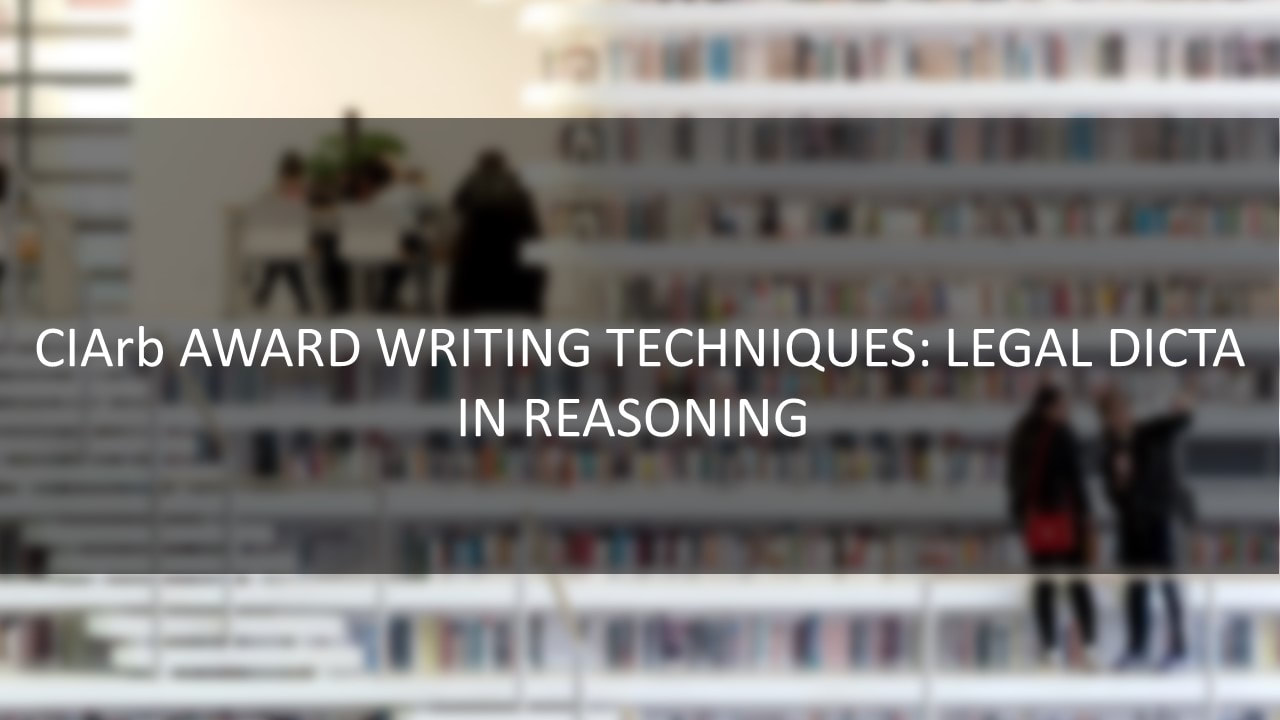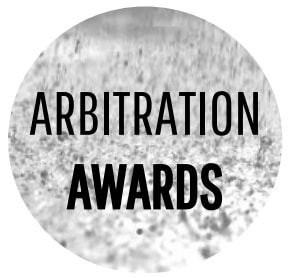CIArb AWARD WRITING TECHNIQUES: LEGAL DICTA IN REASONINGThere may arise a situation that you ought to rely on the wealth of legal-dicta to guide your decision but yet the party as portray in the examination may not have a chance to deliberate such. What would you do?
1. An arbitrator's task is to decide what he has been asked to decide. In real life, arbitrator is cautioned NOT to suggest any legislation that has not proposed as being applicable to a certain issue; reason being the 'loser' might use this to set aside award; citing ‘self-evidence’. 2. In examination, reference to quotation of laws may not be available and it is expected that the examiner will be looking for the candidate to refer to well-known [trite] legal authorities, so as to enable the examiner to know that the candidate could fairly apply the law to arrive to its impartial decision. Otherwise there is nothing for the candidate to write.[1] 3. Therefore, it is important for candidate to make a declaration in its award by quoting [1] and [2] above, as an ‘end-note’ to guide the examiner but not constitute part of the award, so that the examiner will not fail the candidate by declaring that the award is unenforceable. 4. Otherwise, the examiner will claim, “a huge level of dicta rely upon which has not been provided by the party and that has guided all the decision in this award make the award unenforceable”.[2] ------------------------------------ [1] BSS 153-Arbitration Award Writing, Topic 4:Detailed Requirements, (Robert Gordon University, 2017) [2] CIArb International Arbitration Award Writing, Module 3
0 Comments
Leave a Reply. |
AWARD WRITING BLOG FOR ARBITRATIONObjective of this Page:I am sharing these information with a caveat that these information is for educational purpose only and shall not be taken as an advice be it legal or otherwise. You should seek proper advice to your case with the relevant professionals. The author cannot guarantee the accuracy of the information so provided here.
ArchivesCategories
All
|
- Home
- About
-
Practice
-
DYA + C
-
Consultant
-
Educator
- Author I am...
- Speaking Engagement >
- Attempting Law School
- Journey in USM(Arch) >
- Discourse in Studio 6 >
-
d:KON 4
>
- Actors >
-
Acts
>
- Portraiture
- A Slice of Space Time
- Box of Installation of Lights
- Radio Misreading
- Grid of Destinies
- Shelter
- Anatomy of Pain
- Tensigrity of Ego
- Of Prisons and Walls
- Forest of Nails
- Curtain of Fears
- Dissolution of the Ego
- If it's Ain't Broken it's Ain't Worth Mending
- Flight of Freedom
- Cross of Complexity and Contradiction
- interrogation
- Stage >
- Play
- Approach
- Galleria >
- External Critique >
- Philosophy
- Codes Regulations & Standards >
- Photo Essays
- Contact



 RSS Feed
RSS Feed
